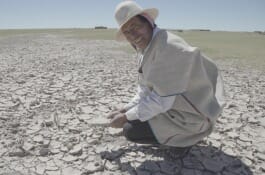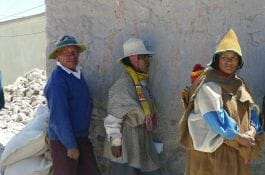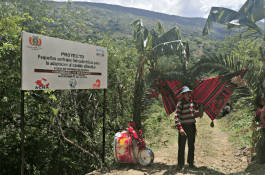
The project is focused on strengthening civil society and Andean communities against the negative (social, political, environmental and economic) consequences…
Discover moreWeWorld has been present in Bolivia since 1987. We are currently working in the Department of La Paz and in the Amazon region of the country, which includes areas affected by mining, and in the health sector, supporting the strengthening of the national health system.
Bolivia is a diverse country located in the centre of South America. It has a rich history and a unique mixture of cultures. The economy has traditionally depended on mining, agriculture and the oil industry. Despite its natural resources, Bolivia faces challenges such as poverty, inequality and the need to address environmental and health issues to promote sustainable development.
On the one hand, mining has historically been an economic pillar, contributing significantly to national income through the extraction of minerals such as silver, zinc, tin and gold. On the other hand, such dependency has raised concerns due to the contamination of rivers by mercury, jeopardising accessibility to drinking water with a high probability of serious health consequences, especially for the most vulnerable groups.
In this regard, the country’s rural areas are the most affected, since the health sector also faces structural challenges, such as limited accessibility to medical services, especially in remote communities. Despite efforts to improve infrastructure and healthcare, challenges in building a stronger and more equitable healthcare system therefore persist.
WeWorld has been present in Bolivia since 1987. We are currently working in the Department of La Paz and in the Amazon region of the country, which includes areas affected by mining, and in the health sector, supporting the strengthening of the national health system.
To address the challenges in relation to mining, together with the Centro de Documentación e Información Bolivia (CEDIB), we carry out processes to strengthen civil society and rural communities in the face of the negative impacts of mining activities. We have been also conducting studies in collaboration with the University of Cartagena (Colombia), which have revealed high levels of mercury contamination in the population, potentially harmful to health. These actions are part of the 'Alianza de Oro' project, which aims to strengthen communities, promote equality and improve environmental management on site.
Likewise and with the aim of improving health conditions in Bolivia, we are developing information campaigns to raise awareness about telemedicine through the National Health and Telemedicine Programme of the Ministry of Health and Sports. On the other hand, we are also training local medical personnel in the use of telemedicine technologies, implementing innovative solutions such as the installation of fixed telemedicine points in hospitals and mobile points for the provision of itinerant telemedicine, as well as the provision of medical equipment to overcome geographical barriers and improve access to health throughout the country.
The project is focused on strengthening civil society and Andean communities against the negative (social, political, environmental and economic) consequences…
Discover moreBolivia, Peru and Paraguay are vulnerable to the risks of natural disasters caused by hydro-meteorological phenomena (floods, storms, drought and…
Discover moreBolivia, Peru and Paraguay are vulnerable to the risks of natural disasters caused by hydro-meteorological phenomena (floods, storms, drought and…
Discover moreThe Chipaya Municipality is inhabited by Uru-Chipaya native descendants. It is one of the 11 Municipalities in Bolivia that has…
Discover moreThe program’s goal is to improve the living conditions of Uru Chipaya indigenous population through activities aimed at retrieving the…
Discover moreBolivia is still one of the poorest countries in South America, with a Human Development Index and a GDP per…
Discover moreThe project contributed to impove the hygienic conditions of children that attend Irupana schools.
Discover moreThe project improved the management of water cycles capabilities of the local communities of the municipalities of Chulumani, Irupana, and…
Discover moreThe project raised awareness among the population of La Paz (Bolivia) about creating reference points and networks of communication between…
Discover moreSupport to street children and adolescents through the activation of the “low threshold” method, based on a direct approach on…
Discover moreThe project, that improved the sanitary and hygienic conditions of the population of Sud-Yungas Province by strengthening the infrastructure and…
Discover more


